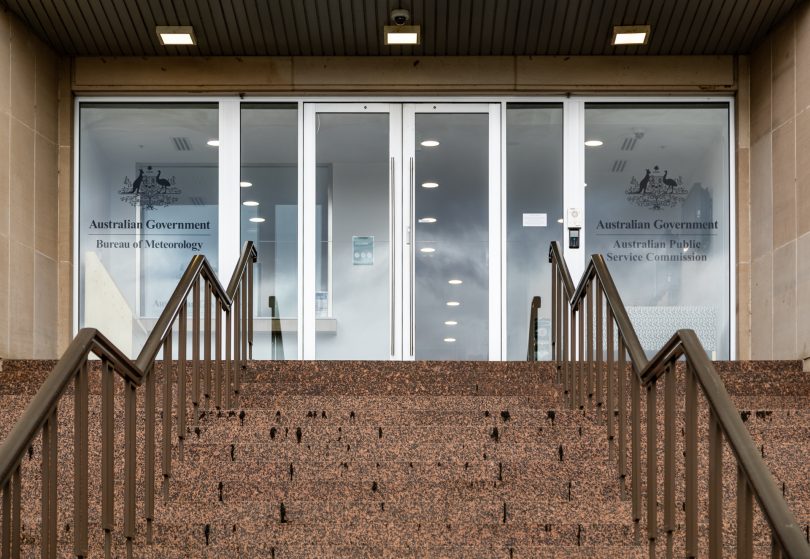
Australian Public Service Commission is responding to public servants wanting more flexible working arrangements. Photo: Michelle Kroll.
The Australian Public Service Commission has flagged greater flexibility arrangements for the APS, including removing caps on how many days public servants can work remotely.
The concession forms part of APS-wide negotiations over wages and conditions for the next enterprise agreement.
The latest bargaining round has seen the APSC throw an uncapped flexible work entitlement on the table as a base condition for Commonwealth public servants.
Employees would be able to negotiate greater flexibility with their agencies without managers having to adhere to service-wide mandated caps.
In its official bargaining update released this week, the APSC reported its proposal to extend existing flexible work requests “for any reason”.
It opens the door for much greater work-from-home levels, which peaked during the COVID-19 lockdowns.
“You have told us a common approach to flexible work is one of the most important items to APS employees,” the update says.
“Following productive discussions, we are confident we can reach a positive outcome for both APS agencies and employees on this matter.”
Deputy commissioner and chief negotiator on the APSC’s workplace relations taskforce, Peter Riordan, put forward a proposal to include:
- Extensions to existing entitlements to allow flexible work requests for any reason.
- Agencies will be expected to genuinely consider and respond to all flexible work requests from their employees.
- The proposed entitlement won’t include a cap on the number of days employees can request to work from home. Instead, agencies will be required to consider what arrangements are appropriate in their agency, taking into account that agencies and their employees know their operating environment and job types the best.
- If an agency is unable to accommodate a flexible work request, there will be a clear process outlined for agencies to follow and a requirement to genuinely try to find alternative arrangements to accommodate the employee’s circumstances.
At the agency level, there have been significant discrepancies over remote working, with some SES showing more flexibility than others.
But the workforce has been expressing a desire for more flexibility to be entrenched in workplace agreements. The government hopes the offer will temper the push for extravagant pay increases across the service.
The Community and Public Sector Union has called for a 20 per cent wage increase over three years for APS employees.
In his valedictory address this week, outgoing APS Commissioner Peter Woolcott praised how public service operated during the pandemic when half of the workforce was working from home on any given day.
“Now the way we worked in addressing the pandemic needs to be more commonplace and part of a cultural shift in the APS,” he said.
Speaking specifically about flexibility, Mr Woolcott noted that a bargaining process was underway to establish a set of common terms that will apply across all APS enterprise agreements.
“The concept of flexible work needs to balance considerations for the individual, the team and the organisation,” he said.
“It is about mutual benefit.”
New research has shown that APS employees believe they are more productive working from home than at the office, which they say was the case during the pandemic experience.
The Working During the Pandemic: From resistance to revolution study was undertaken by the University of NSW Canberra’s Public Service Research Group and CQUniversity with support from the CPSU.
A self-reporting survey was conducted at the height of COVID restrictions when APS management and staff were made to work at home.
It shows most were not only comfortable with the arrangements but felt they functioned at a better level.
About 6000 public sector employees responded, essentially expressing the view that because arrangements worked so well during the pandemic, they now want greater flexibility over where they work to be a condition of their employment.



















